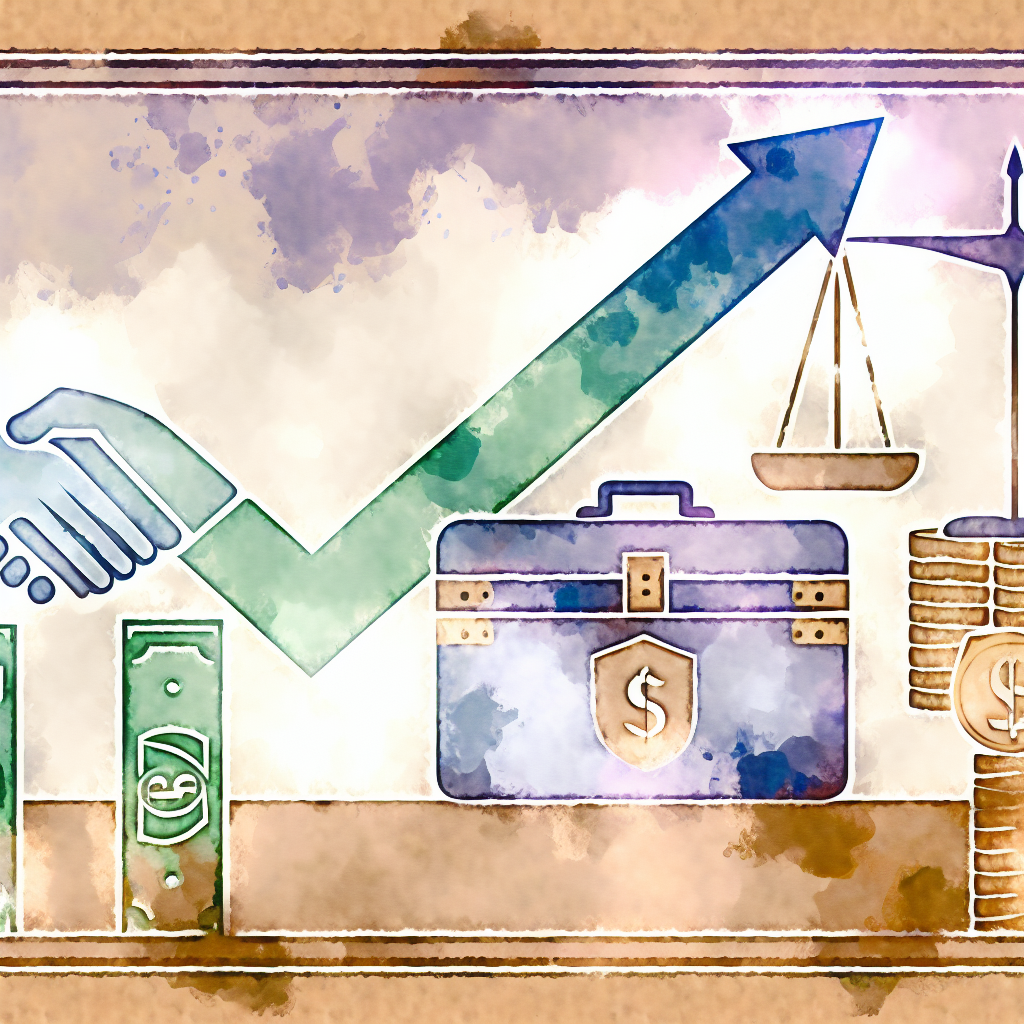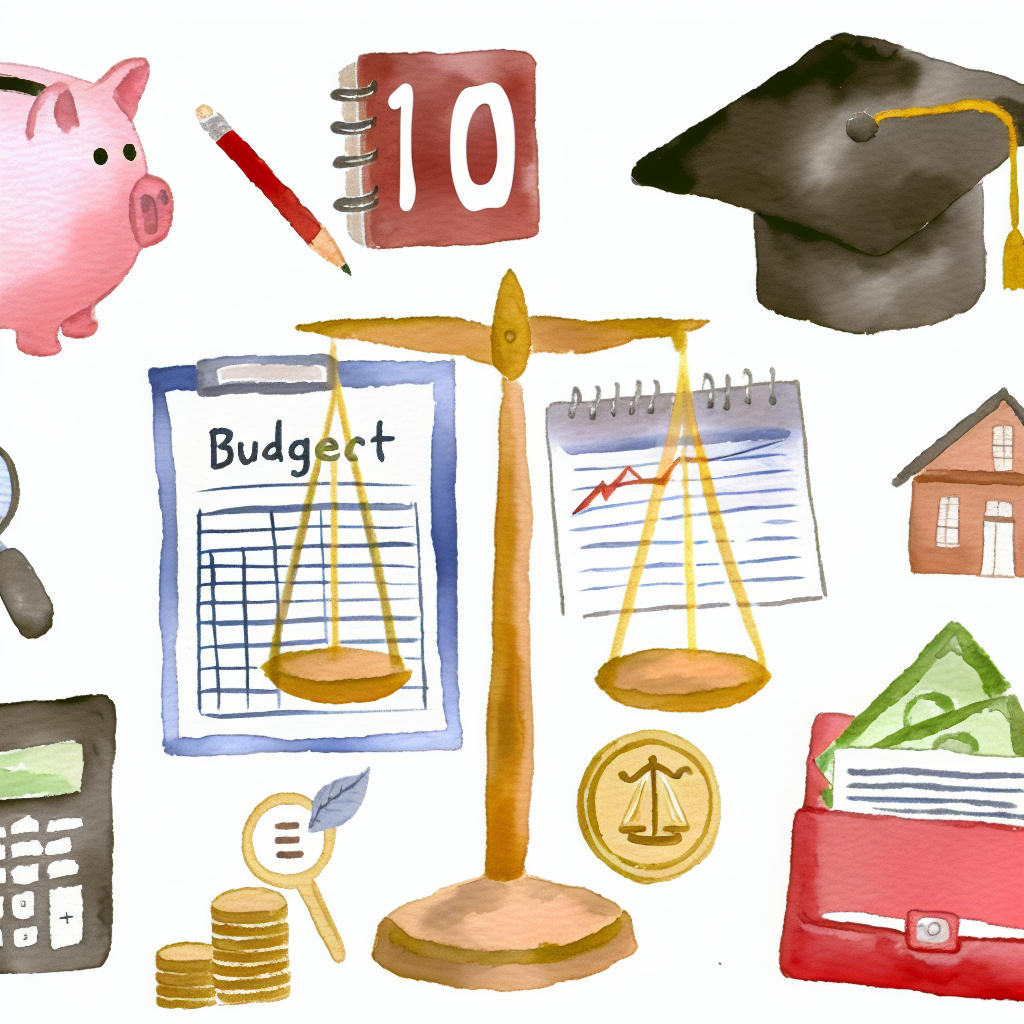At times, you might be tempted to close your credit accounts for various reasons—including high-interest rates, annual fees, or simply wanting to reduce the number of accounts you have. However, jumping to close these accounts without considering the ramifications can be detrimental to your credit score and financial goals. It’s crucial to approach this decision with a well-informed mindset and strategic planning.
This article aims to provide effective tips to help you avoid the temptation to close your credit accounts. By understanding the importance of maintaining open accounts, identifying your triggers, and developing strategies to manage these temptations, you can preserve your credit health. Furthermore, setting financial goals, using credit wisely, and incorporating accountability partners can further strengthen your financial standing.
Let’s delve into the nuances of credit management and explore various strategies and alternatives to closing your accounts, ensuring you build a robust financial future.
Understanding the Importance of Keeping Credit Accounts Open
The significance of keeping your credit accounts open cannot be overstated. Open credit accounts are a testament to your creditworthiness and financial management skills. When creditors and lenders review your credit report, the length of your credit history and the diversity of your accounts weigh heavily in their assessment.
- Credit History Length: One of the most important components of your credit score is the length of your credit history. The longer your accounts have been open and in good standing, the better it reflects on your credit report. Closing old accounts can shorten this history and negatively impact your score.
- Credit Utilization Ratio: Your credit utilization ratio, or the amount of credit you’re using compared to your total available credit, plays a crucial role in your credit score. By closing an account, you reduce your total available credit, which can increase your credit utilization ratio and lower your score.
- Credit Mix: Having a variety of credit types—including credit cards, retail accounts, installment loans, and mortgage loans—is beneficial for your credit score. Open credit accounts contribute to this diversity and closing them can lead to a less diverse credit profile.
Open accounts signify your ability to manage credit responsibly over time. Therefore, it’s essential to think twice before deciding to close an account, considering both short-term impacts on your credit score and long-term financial goals.
How Closing Credit Accounts Affects Your Credit Score
Understanding how closing credit accounts affects your credit score is paramount before making any decisions. Several factors come into play, influencing your overall financial health in various ways.
- Immediate Impact on Credit Score: When you close a credit account, the immediate effect is often a drop in your credit score. This happens because you lose the positive payment history associated with that account, contributes to about 35% of your FICO score.
- Reduction in Available Credit: Closing an account reduces your total available credit, which can lead to an increase in your credit utilization ratio. Ideally, you want to keep this ratio below 30%. If it goes higher due to a decrease in available credit, your score could drop significantly.
- Loss of Credit History: If you close one of your older credit accounts, you also lose the length of credit history associated with that account. This can make your credit history appear shorter to lenders, negatively impacting your score.
| Account Open | Account Closed | |
|---|---|---|
| Credit History Length | Increases | Decreases |
| Credit Utilization Ratio | Lower | Higher |
| Credit Mix | More Diverse | Less Diverse |
Closing an account can have a ripple effect, impacting several components of your credit score. Therefore, it’s advisable to think carefully and consider all these factors before proceeding with account closure.
Identifying Your Triggers to Close Credit Accounts
Recognizing and understanding what triggers your urge to close credit accounts is essential for managing this temptation. Various internal and external factors can influence this decision.
- Financial Stress and Anxiety: One of the most common triggers is financial stress and anxiety. High-interest rates, annual fees, or debt can make you feel overwhelmed, prompting the urge to close accounts to simplify your finances.
- Lifestyle Changes: Significant life events, such as marriage, divorce, or job loss, can influence your financial habits and decisions. These transitions can be triggers for wanting to restructure your financial portfolio, including closing credit accounts.
- Misunderstanding Credit Management Principles: A lack of understanding about how credit works and the importance of maintaining open accounts can also be a trigger. Many people close accounts thinking it will improve their credit score when it often has the opposite effect.
By identifying these triggers, you can better understand your motivations and develop strategies to manage them more effectively.
Strategies to Manage Temptation without Closing Accounts
Once you’ve identified your triggers, implementing strategies to manage the temptation to close your accounts is crucial. Here are some effective methods:
- Automating Payments: Setting up automatic payments can help alleviate the stress of remembering due dates and managing multiple accounts. This ensures you avoid late payments, reducing anxiety and the urge to close accounts.
- Creating Reminders and Alerts: Utilize financial apps or your bank’s alert system to set up reminders for payment due dates, account balances, and other critical information. Staying informed can help you feel more in control and less tempted to close accounts impulsively.
- Debt Repayment Plans: Develop a structured debt repayment plan that focuses on paying down high-interest debt first while keeping your accounts open. This can reduce financial stress and provide a clear path to financial stability.
By implementing these strategies, you can manage the temptation to close credit accounts without compromising your financial health.
Setting Financial Goals and Building a Budget
Setting clear financial goals and building a budget are fundamental steps in maintaining open credit accounts and achieving overall financial health.
- Define Your Goals: Whether it’s saving for a house, paying off a student loan, or building an emergency fund, having defined financial goals can provide direction and motivation. Clear goals can help you focus on long-term benefits rather than short-term temptations.
- Create a Realistic Budget: A well-crafted budget allows you to manage your income, expenses, and debt repayments effectively. Include all your credit card payments in your budget, ensuring you allocate enough funds to maintain these accounts in good standing.
- Regularly Review and Adjust: Your financial situation and goals may change over time, so it’s essential to regularly review and adjust your budget. Frequent reviews help you stay on track and make necessary modifications to accommodate any life changes.
Building a robust financial plan with realistic goals and a flexible budget can lessen the urge to close your accounts, ensuring you remain on a steady path to financial success.
Using Credit Wisely: Dos and Don’ts
Effectively managing open credit accounts means understanding the dos and don’ts of using credit wisely. Here are key practices to keep in mind:
Dos:
- Pay on Time: Always make your payments on time. Late payments can significantly damage your credit score and lead to unnecessary fees.
- Keep Balances Low: Aim to keep your credit card balances below 30% of your total credit limit to maintain a healthy credit utilization ratio.
- Monitor Your Credit Report: Regularly check your credit report for errors and discrepancies. Correcting any inaccuracies can prevent unwarranted drops in your score.
Don’ts:
- Max Out Cards: Avoid maxing out your credit cards, as this can increase your credit utilization ratio and lower your score.
- Apply for Multiple Accounts Simultaneously: Too many credit inquiries in a short period can negatively impact your score and suggest financial instability.
- Ignore Financial Statements: Ignoring your credit card statements can lead to missed payments and unnoticed fraudulent charges. Always review them carefully.
Understanding these dos and don’ts can enhance your ability to manage your credit responsibly and maintain open accounts.
The Role of Accountability Partners in Maintaining Credit Health
Having accountability partners can significantly aid in maintaining credit health and managing the temptation to close accounts.
- Peer Support: Engaging with friends or family who share similar financial goals can offer mutual support and encouragement. For instance, you can join forces to review each other’s financial plans and provide accountability.
- Financial Advisors: Seeking help from a certified financial advisor can provide professional guidance tailored to your financial situation. Advisors can offer strategies to manage debt and credit accounts effectively.
- Support Groups: Joining financial literacy support groups can offer a community of like-minded individuals who share advice, tips, and moral support. This can be particularly beneficial if you’re struggling with the temptation to close accounts.
Accountability partners can offer valuable support, helping you stay committed to your financial goals and avoid the impulse to close credit accounts rashly.
Exploring Alternatives to Closing Credit Accounts
If you’re struggling with the temptation to close your credit accounts, exploring alternative solutions can be beneficial.
- Lower Interest Rates: Contact your credit card issuer to negotiate a lower interest rate. A lower rate can alleviate some financial pressure, making it easier to keep the account open.
- Balance Transfer: Consider transferring your balance to a card with a lower interest rate. Many cards offer 0% introductory rates on balance transfers, which can help you pay off the balance without accruing interest.
- Credit Counseling: Seeking help from a credit counseling agency can provide you with personalized strategies to manage your debt and keep your accounts open. They can work with creditors to create a repayment plan that fits your budget.
Exploring these alternatives provides you with options to manage your financial situation without closing your credit accounts.
Building a Strong Credit History for the Future
Building a strong credit history is essential for accessing financial opportunities in the future, such as mortgages, loans, or even renting an apartment.
- Consistent Payments: Always making payments on time is one of the most effective ways to build a strong credit history. Consistency shows creditors that you are reliable and capable of managing debt.
- Diverse Credit Types: Maintaining a mix of credit types, such as credit cards, installment loans, and retail accounts, can help you build a diverse credit portfolio. This diversity is favorable in the eyes of lenders.
- Monitoring and Maintenance: Regularly monitoring your credit report and maintaining your accounts in good standing is crucial. Address any issues or discrepancies promptly to ensure your credit history remains strong.
A robust credit history opens doors to numerous financial opportunities and ensures you can access the best terms and rates when needed.
Resources and Tools to Help You Stay on Track
Utilizing resources and tools can help you stay on track with your credit management goals.
- Financial Apps: Apps like Mint, YNAB (You Need A Budget), and PocketGuard can help you manage your budget, track spending, and stay on top of your credit accounts.
- Credit Monitoring Services: Services like Experian, Equifax, and Credit Karma offer credit monitoring and alert you to any changes in your credit report, helping you stay informed.
- Educational Websites: Websites like Investopedia and NerdWallet provide valuable financial education resources tailored to credit management and personal finance.
Incorporating these tools into your financial routine can enhance your ability to manage credit accounts effectively and avoid the temptation to close them.
When It Might Be Okay to Close a Credit Account
While the focus of this article is on avoiding the temptation to close your credit accounts, there are circumstances where it might be okay or even beneficial to close an account.
- High Fees with Minimal Benefits: If an account has high annual fees and offers minimal benefits that you don’t use, closing it might make sense, provided it doesn’t dramatically impact your credit score.
- Fraud or Identity Theft: If an account is a continuous target for fraud, closing it can protect your credit health and personal finances.
- Simplifying Finances: If you have multiple accounts and you’re effectively managing them but find them cumbersome, consolidating them by closing a few could simplify your finances. It must be done prudently, considering the possible effects on your credit score.
Understanding when it might be okay to close an account ensures you make informed decisions that align with your overall financial goals.
Conclusion
Managing credit accounts wisely is an integral part of maintaining and improving your financial health. The temptation to close accounts can be strong, especially when faced with financial stress or misconceptions about credit management. However, understanding the importance of keeping your accounts open, recognizing your triggers, and implementing effective strategies can help you avoid the pitfalls of account closure.
Building a strong financial plan, setting clear goals, and using credit responsibly are fundamental to long-term success. Accountability partners can provide valuable support, while exploring alternatives to account closure offers practical solutions to financial challenges.
By leveraging resources and tools, you can stay informed and manage your credit effectively. When considering closing an account, weigh the pros and cons carefully to ensure it aligns with your financial goals.
Staying committed to maintaining open credit accounts will contribute to a robust credit profile, opening up opportunities and securing a prosperous financial future.
Recap
- Understanding the importance of keeping credit accounts open is vital for maintaining a strong credit score.
- Closing credit accounts can negatively affect your credit score by reducing your credit history length and increasing your credit utilization ratio.
- Identify triggers that lead to the temptation to close accounts, such as financial stress or lifestyle changes.
- Implement strategies like automating payments and creating a debt repayment plan to manage the temptation.
- Set clear financial goals and build a realistic budget to stay on track.
- Use credit wisely by paying on time, keeping balances low, and monitoring your credit report.
- Accountability partners and financial advisors can provide support and guidance.
- Explore alternatives to closing accounts, such as negotiating lower interest rates or credit counseling.
- Building a strong credit history is essential for future financial opportunities.
- Utilize resources like financial apps and credit monitoring services to manage your credit effectively.
- Recognize scenarios where it might be okay to close an account to simplify finances or protect against fraud.
Frequently Asked Questions (FAQ)
1. Why is it important to keep credit accounts open?
Keeping credit accounts open helps maintain a long credit history, low credit utilization ratio, and a diverse credit mix, all of which positively impact your credit score.
2. What is a credit utilization ratio?
The credit utilization ratio is the amount of credit you use compared to your total available credit. It should be kept below 30% to ensure a healthy credit score.
3. How does closing a credit account affect my credit score?
Closing a credit account can lower your credit score by reducing your credit history length and increasing your credit utilization ratio.
4. What are some triggers that might lead me to close a credit account?
Common triggers include financial stress, high-interest rates, annual fees, lifestyle changes, and a misunderstanding of credit management principles.
5. What strategies can I use to manage the temptation to close credit accounts?
Strategies include automating payments, creating reminders, developing a debt repayment plan, and setting clear financial goals.
6. When might it be okay to close a credit account?
It might be okay to close an account if it has high fees with minimal benefits, is frequently targeted by fraud, or simplifying your finances outweighs the potential credit score impact.
7. How can accountability partners help in managing my credit accounts?
Accountability partners can provide support, encouragement, and advice, helping you stay committed to your financial goals and manage your credit accounts responsibly.
8. What resources are available to help me manage my credit accounts?
Resources include financial apps like Mint and YNAB, credit monitoring services like Experian and Equifax, and educational websites like Investopedia and NerdWallet.
References
- Experian – How to Manage Credit Card Debt
- NerdWallet – Strategies for Paying Off Credit Cards
- Investopedia – Understanding Credit Utilization and FICO Scores











